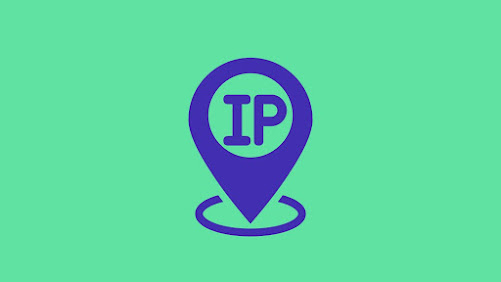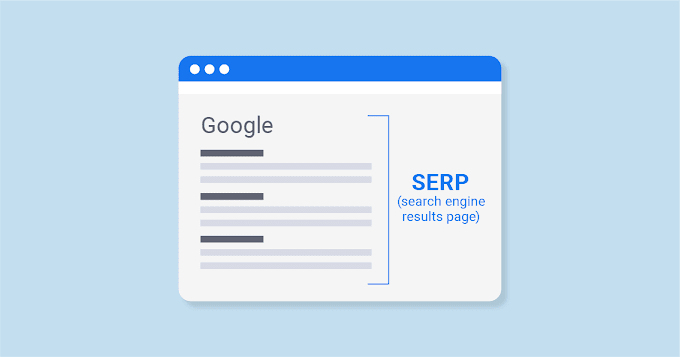Introduction
In today's digital age, we rely heavily on the internet to carry out various tasks, including communicating, shopping, banking, and entertainment. But have you ever stopped to wonder how all this is possible? One of the fundamental components that make the internet possible is the IP address.What is an IP Address?
An IP address is a unique numerical identifier assigned to each device that is connected to the internet. It serves as a location marker that enables other devices to locate and communicate with it. The acronym "IP" stands for Internet Protocol, which is the set of rules that govern how devices communicate over the internet.The Components of an IP Address
An IP address comprises four components, separated by periods. Each component is a number between 0 and 255. For example, an IP address may look like this: 192.168.0.1.The first component indicates the network or group to which the device belongs. The second component specifies the subnet, which is a smaller division within the network. The third component identifies the device's location within the subnet, while the fourth component is the device's unique identifier on the network.
Types of IP Addresses
There are two types of IP addresses: IPv4 and IPv6. IPv4 is the older of the two and is still in use today. It uses a 32-bit numbering system, which means there are roughly 4.3 billion possible unique IP addresses. However, with the increasing number of internet-connected devices, IPv4 addresses are becoming scarce.IPv6, on the other hand, is the newer protocol that uses a 128-bit numbering system, allowing for a virtually unlimited number of unique IP addresses.
**How IP Addresses Work
network (VPN), which masks your IP address and encrypts your internet traffic. Another option is to use a proxy server, which acts as an intermediary between your device and the internet and masks your IP address.
Common Myths About IP Addresses
There are several common misconceptions about IP addresses. One of the most prevalent is that an IP address can reveal your physical location. While an IP address can provide some information about your general location, it cannot pinpoint your exact physical location.Another myth is that IP addresses are permanent and cannot be changed. In reality, IP addresses are assigned dynamically by ISPs and can change over time.
Conclusion
In summary, an IP address is a unique numerical identifier that enables devices to locate and communicate with each other on the internet. It comprises four components and can be of two types: IPv4 and IPv6. IP addresses play a vital role in enabling connectivity and network security, and they can be found and hidden using various methods.FAQs
Can I change my IP address?
Yes, your IP address can change over time as it is assigned dynamically by your ISP.Can an IP address reveal my physical location?
While an IP address can provide some information about your general location, it cannot pinpoint your exact physical location.
What is the difference between IPv4 and IPv6?
IPv4 uses a 32-bit numbering system and has roughly 4.3 billion possible unique IP addresses, while IPv6 uses a 128-bit numbering system and has a virtually unlimited number of unique IP addresses.
Why would I want to hide my IP address?
You may want to hide your IP address for privacy or security reasons, such as to prevent your internet activity from being tracked.
Can I use a VPN to hide my IP address?
Yes, a VPN can mask your IP address and encrypt your internet traffic to provide added privacy and security.
In addition, it's important to note that IP addresses can also be used for tracking purposes. Websites and online services can use your IP address to monitor your internet activity and behavior, such as the pages you visit and the content you access. This is why some people choose to hide their IP address or use a VPN to protect their privacy and prevent tracking.
One potential downside of using a VPN or proxy server to hide your IP address is that it can slow down your internet connection. This is because the traffic must be routed through an additional server, which can cause latency and delays. However, this trade-off may be worth it for those who prioritize privacy and security.
It's also worth noting that IP addresses can be spoofed or faked, which means that they can be manipulated to appear as if they are coming from a different location or device. This can be useful in certain situations, such as for accessing geo-restricted content or bypassing censorship, but it can also be used for malicious purposes, such as phishing scams or cyberattacks.
In conclusion, understanding what an IP address is and how it works is an essential part of navigating the internet. While it may seem technical and complex, it's important for both individuals and businesses to have a basic understanding of IP addresses and their role in network connectivity and security. Whether you're looking to protect your privacy, access restricted content, or simply learn more about how the internet works, understanding IP addresses is a crucial first step.
In addition, it's important to note that IP addresses can also be used for tracking purposes. Websites and online services can use your IP address to monitor your internet activity and behavior, such as the pages you visit and the content you access. This is why some people choose to hide their IP address or use a VPN to protect their privacy and prevent tracking.
One potential downside of using a VPN or proxy server to hide your IP address is that it can slow down your internet connection. This is because the traffic must be routed through an additional server, which can cause latency and delays. However, this trade-off may be worth it for those who prioritize privacy and security.
It's also worth noting that IP addresses can be spoofed or faked, which means that they can be manipulated to appear as if they are coming from a different location or device. This can be useful in certain situations, such as for accessing geo-restricted content or bypassing censorship, but it can also be used for malicious purposes, such as phishing scams or cyberattacks.
In conclusion, understanding what an IP address is and how it works is an essential part of navigating the internet. While it may seem technical and complex, it's important for both individuals and businesses to have a basic understanding of IP addresses and their role in network connectivity and security. Whether you're looking to protect your privacy, access restricted content, or simply learn more about how the internet works, understanding IP addresses is a crucial first step.
An IP address is basically a unique identifier that is assigned to every device that is connected to the internet. It's like a phone number or mailing address for your device, which allows it to communicate with other devices and access online resources.
IP addresses can be either IPv4 or IPv6, which are two different numbering systems that are used to assign unique IP addresses. IPv4 uses a 32-bit numbering system and has roughly 4.3 billion possible unique IP addresses, while IPv6 uses a 128-bit numbering system and has a virtually unlimited number of unique IP addresses.
One common misconception about IP addresses is that they reveal your physical location. While an IP address can provide some information about your general location, such as the city or region where your ISP is located, it cannot pinpoint your exact physical location.
IP addresses can also be used for tracking purposes, which is why some people choose to hide their IP address or use a VPN to protect their privacy and prevent tracking. A VPN, or virtual private network, is a type of online service that can mask your IP address and encrypt your internet traffic to provide added privacy and security.
While using a VPN or proxy server to hide your IP address can be useful for protecting your privacy, it can also slow down your internet connection due to the additional routing that is required. Additionally, IP addresses can be spoofed or faked, which means that they can be manipulated to appear as if they are coming from a different location or device. This can be useful in certain situations, such as for accessing geo-restricted content or bypassing censorship, but it can also be used for malicious purposes, such as phishing scams or cyberattacks.
In conclusion, understanding what an IP address is and how it works is important for navigating the internet safely and securely. Whether you're looking to protect your privacy, access restricted content, or simply learn more about how the internet works, understanding IP addresses is a crucial first step.
Let's say you want to visit a website, like Google.com, on your computer or smartphone. In order to access Google's website, your device needs to know where to send and receive information. That's where an IP address comes in.
When you type "google.com" into your web browser, your device sends a request to a domain name server (DNS) to look up the IP address associated with that domain name. Once your device has the IP address, it can send a request directly to Google's web server, which is located at that IP address.
Once your device has established a connection with Google's web server, it can send and receive data, like search queries or website content. And all of this happens behind the scenes, without you ever needing to think about IP addresses or how they work.
Of course, there are many more technical details involved in the process, like routing protocols and network infrastructure, but hopefully, this example gives you a basic idea of how IP addresses are used to facilitate internet communication.
IP addresses can be either IPv4 or IPv6, which are two different numbering systems that are used to assign unique IP addresses. IPv4 uses a 32-bit numbering system and has roughly 4.3 billion possible unique IP addresses, while IPv6 uses a 128-bit numbering system and has a virtually unlimited number of unique IP addresses.
One common misconception about IP addresses is that they reveal your physical location. While an IP address can provide some information about your general location, such as the city or region where your ISP is located, it cannot pinpoint your exact physical location.
IP addresses can also be used for tracking purposes, which is why some people choose to hide their IP address or use a VPN to protect their privacy and prevent tracking. A VPN, or virtual private network, is a type of online service that can mask your IP address and encrypt your internet traffic to provide added privacy and security.
While using a VPN or proxy server to hide your IP address can be useful for protecting your privacy, it can also slow down your internet connection due to the additional routing that is required. Additionally, IP addresses can be spoofed or faked, which means that they can be manipulated to appear as if they are coming from a different location or device. This can be useful in certain situations, such as for accessing geo-restricted content or bypassing censorship, but it can also be used for malicious purposes, such as phishing scams or cyberattacks.
In conclusion, understanding what an IP address is and how it works is important for navigating the internet safely and securely. Whether you're looking to protect your privacy, access restricted content, or simply learn more about how the internet works, understanding IP addresses is a crucial first step.
Let's say you want to visit a website, like Google.com, on your computer or smartphone. In order to access Google's website, your device needs to know where to send and receive information. That's where an IP address comes in.
When you type "google.com" into your web browser, your device sends a request to a domain name server (DNS) to look up the IP address associated with that domain name. Once your device has the IP address, it can send a request directly to Google's web server, which is located at that IP address.
Once your device has established a connection with Google's web server, it can send and receive data, like search queries or website content. And all of this happens behind the scenes, without you ever needing to think about IP addresses or how they work.
Of course, there are many more technical details involved in the process, like routing protocols and network infrastructure, but hopefully, this example gives you a basic idea of how IP addresses are used to facilitate internet communication.




